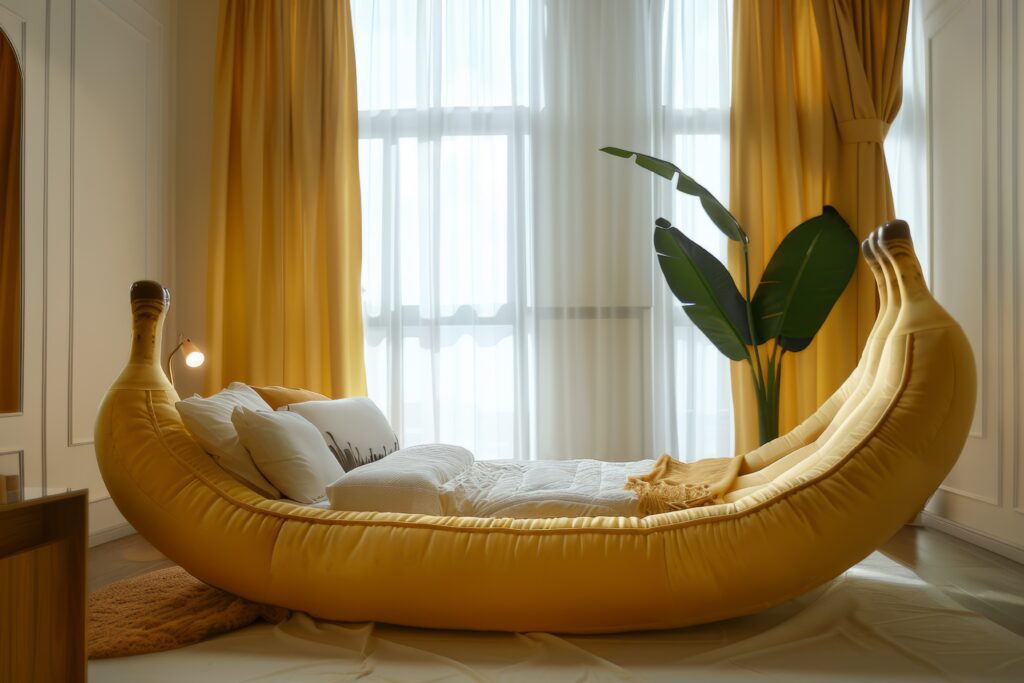How to Sleep Better in Hot Weather: 9 Cooling Tips
When the nights are warm and sticky, getting quality sleep can feel impossible. Your body naturally cools before bedtime, but hot weather works against this process, making it harder to drift off and stay asleep. The good news? With a few smart adjustments, you can learn how to sleep better in hot weather and create a cooler, more comfortable environment — even during the hottest summer nights.
1. Keep Your Room Cool During the Day
If your bedroom heats up all day, it will stay warm at night. Try to block sunlight and heat before bedtime. Close blinds or curtains during the hottest hours. Open windows early in the morning or late at night to let in cooler air. Even small changes in room temperature can make a big difference to your comfort at night.

2. Use Light, Breathable Bedding
Heavy blankets trap heat. Instead, switch to cotton or linen sheets, which allow better airflow and absorb sweat. Ditch thick duvets in favor of a lightweight cover or even just a sheet. Pro tip: If you still want some weight for comfort, try a summer-weight quilt.
3. Take a Cool Shower Before Bed
A quick rinse in cool water can lower your body temperature, helping you feel more relaxed when you lie down. Just avoid freezing cold water — it can make your body work harder to warm up, which might have the opposite effect.
4. Adjust Your Sleeping Position
Sleeping spread out can help heat escape from your body. If you share your bed, give each other more space to prevent excess warmth. Important: Avoid curling up tightly — it traps heat close to your body.
5. Stay Hydrated (But Time It Right)
Dehydration can make you feel hotter. Drink water throughout the day, but avoid large amounts right before bed to prevent nighttime bathroom trips. Keeping a glass of water by your bed can be handy for those extra warm nights.
6. Create a Cooling Airflow
Using fans strategically can make a big difference:
- Place a fan near an open window to bring in cooler air
- Try positioning two fans to create cross-ventilation
- Put a bowl of ice in front of a fan for a quick DIY cool breeze
(Insert image showing a fan setup with a bowl of ice in front)
7. Wear Breathable Sleepwear
Choose lightweight cotton pajamas or even just a loose T-shirt. Avoid synthetic fabrics, as they trap heat and moisture against the skin.
8. Limit Heat-Producing Activities Before Bed
Cooking, using electronics, or exercising close to bedtime can warm up your home and your body. Try to finish these activities earlier in the evening. Tip: If you must cook, opt for lighter meals or use appliances like a slow cooker instead of the oven.
9. Cool Your Pulse Points
Applying a cold compress or ice pack to areas like your wrists, neck, or behind your knees can help lower your overall body temperature. This simple trick works because cooling these points can help your body regulate heat more effectively.
Quick Recap of the 9 Cooling Tips
- Keep your room cool during the day
- Use breathable bedding
- Take a cool shower before bed
- Adjust sleeping position
- Stay hydrated
- Create a cooling airflow
- Wear breathable sleepwear
- Limit heat-producing activities
- Cool your pulse points
The bottom line: Knowing how to sleep better in hot weather is about preparation and small changes that add up. By keeping your bedroom cool, your bedding light, and your body temperature down, you can rest more comfortably — even on the hottest nights.
FAQs About How to Sleep Better in Hot Weather
1. Why is it harder to sleep in hot weather?
Because your body needs to cool down to fall asleep, hot temperatures interfere with this natural process, making it harder to get restful sleep.
2. What is the ideal bedroom temperature for sleep?
Most experts recommend around 18–20°C (65–68°F) for optimal comfort.
3. Can a fan help me sleep better in hot weather?
Yes, fans improve airflow, which helps your body release heat. Pairing a fan with an open window or a bowl of ice can make it even more effective.
4. Should I sleep without clothes when it’s hot?
Light, breathable clothing is usually best. Sleeping naked can work for some, but fabrics like cotton help absorb sweat and keep you cooler.
5. Does drinking cold water before bed help?
It can help lower your body temperature slightly, but avoid drinking too much right before sleeping to prevent waking up for bathroom trips.

Yeah bookmaking this wasn’t a speculative determination great post! .
Pingback: How to Sleep After Drinking Too Much Alcohol: 7 Helpful Tips